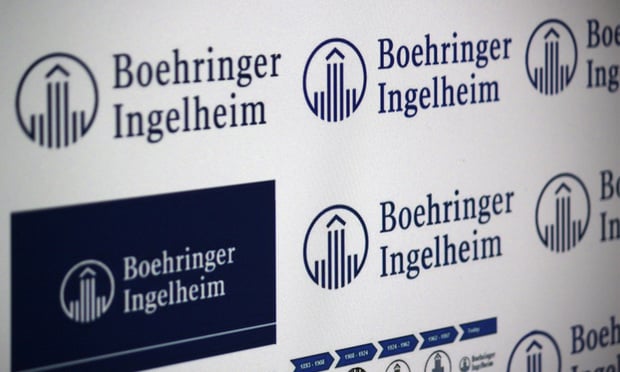 Under New York'sapproach to out-of-network billing, each party submits a proposeddollar amount to the arbiter, who then chooses one as the finalmonetary award.
Under New York'sapproach to out-of-network billing, each party submits a proposeddollar amount to the arbiter, who then chooses one as the finalmonetary award.
Lobbying campaigns and legislative battles have been underway for months as Congresstries to solve the problem of surprise billing, when patients faceoften exorbitant costs after they unknowingly receive care from anout-of-network doctor or hospital.
|As Congress considers various plans and negotiates behind thescenes, data is trickling in from states that have beentest-driving proposed solutions.
|Related: Physician groups play hardball opposition againstsurprise billing fixes
|New York was among the first to tackle the issue. In 2015, itpassed a surprise billing law that uses "baseball-style"arbitration as a way to settle payment disputes between insurancecompanies and doctors. Under this approach, which is used in MajorLeague Baseball to negotiate salaries (hence the name), each partysubmits a proposed dollar amount to the arbiter, who then choosesone as the final monetary award.
|According to an analysis of newly released data from New York's Department of Financial Services, the NewYork model is making health care substantially more expensive inthe state. In fact arbiters are typically deciding on dollaramounts above the 80th percentile of typical costs.
|"This is an extremely high and extremely inflationary rule ofthumb," said Loren Adler, author of the analysis and associatedirector of the USC-Brookings Schaeffer Initiative for HealthPolicy.
|New York's financial agency reported that the law has savedconsumers $400 million, but Adler challenged the claim, saying thestate's experience has shown limited relief for patients.
|Arbitration, or as New York calls it "independent disputeresolution," or IDR, works like this: A patient gets into anaccident and goes to a hospital in her insurance network. Whilethere, she sees a physician ― perhaps an emergency room doctor oranesthesiologist ― who isn't covered by her insurance company.
|The insurance company pays a small part of the bill, and thedoctor sends the patient a bill for the rest (often called abalance bill). Under New York's law, the patient is held harmless,meaning they only have to pay as much of their deductible, copay orcoinsurance as they would if the doctor were in network. If theinsurance company and the physician can't agree on how much of thebill to pay, they can take the issue to IDR.
|They each bring their "fair-price," "final bid" to the arbiter,who then decides between the two.
|The problem, according to Adler, comes in the guidance the NewYork law gives arbiters. It says they should consider the 80thpercentile of "billed charges."
|"Providers' billed charges, or list prices, are unilaterallyset, largely unmoored from market forces, and generally many timeshigher than in-network negotiated rates or Medicare rates," Adlerwrote.
|So bill charges are already much higher than what Medicare pays,and on top of that, arbiters are told to focus on the 80thpercentile of those rates, an amount higher than what 80% ofdoctors charge for that procedure.
|It wasn't clear at first how strictly arbiters would follow thisguidance, but the data suggests they're using it most of the time.On average, arbitration decisions have been 8% higher than that80th percentile mark.
|"People think there's something magical about arbitration, thatthese brilliant geniuses sit down and look at all the facts to makea decision," Adler said. "They're normal people who don't have muchmore expertise than insurers or providers, and this stronglysuggests they're just coming up with a rule of thumb."
|According to the analysis, the number of bills undergoingarbitration went from 115 in 2015 to 1,014 in 2018. Many advocatesof arbitration predict the number of claims will drop over time asinsurers and providers work out claims themselves. Based on thesenumbers, though, this hasn't happened yet.
|Insurance plans and doctors "won" about the same number ofcases, and in 2018 more cases seemed to go in the providers' favor.Yet, Adler pointed out, consumers appeared to lose either way.
|That's because even when the insurance plan won, it was onaverage only 11% less than the 80th percentile, which Adler said isstill around three times as much as a patient would pay if thedoctor were in-network. Those extra costs, he said, get passed onin the form of higher premiums.
|One of the bills in Congress seeking to address surprise medicalbills also relies on arbitration as the solution. But the billauthors, Sen. Bill Cassidy (R-La.) and Sen. Maggie Hassan (D-N.H.),were both quick to draw the distinction between their arbitrationbill and New York's model at an event about surprise billing at theBipartisan Policy Center on October 30.
|"The New York system uses as its payment standard [bill]charges, which we think is wrong and misguided," Hassan said."Which is why our bill doesn't."
|Hassan and Cassidy's bill, called the STOP Surprise Medical Bills Act of 2019, avoids tying paymentrates to the "bill charges" with which Adler and other experts takeissue.
|Instead, arbiters are supposed to consider "commercially reasonable rates" based on what other in-networkdoctors charge in that geographic area, as well as factors like thelevel of training the provider had and the complexity of thedispute.
|Adler called Cassidy and Hassan's bill "leagues better" than theNew York approach, but he's still skeptical of how vague theguidance is.
|Cassidy dismissed many of the criticism in the Brookings'analysis, including the increase in cases going to arbitrationbecause, he said, it represents such a small portion of the overallclaims in New York.
|He said they were still learning a lot from New York'sexperience.
|"I think it's been incredibly useful," Cassidy said.
|"We know that IDR is not abused," he said. "And it's beenadopted by a spectrum of politically diverse states andgeographically diverse states."
|As for the main Senate bill, backed by Health, Education, Laborand Pensions Committee Chairman Lamar Alexander (R-Tenn.), it woulduse a different method to settle payment disputes. Under thisapproach, known as benchmarking, out-of-network providers mustaccept a set payment for their services, which would be based on amedian of what other providers in the area charge.
|Alexander's bill, which gained committee approval (20-3) in June, is still awaitingconsideration by the full Senate.
|It will have to navigate the pro-arbitration factions in theHouse.
|Kaiser HealthNews (KHN) is a national health policy news service. It is aneditorially independent program of the Henry J. Kaiser Family Foundation whichis not affiliated with Kaiser Permanente.
|Read more:
Complete your profile to continue reading and get FREE access to BenefitsPRO, part of your ALM digital membership.
Your access to unlimited BenefitsPRO content isn’t changing.
Once you are an ALM digital member, you’ll receive:
- Critical BenefitsPRO information including cutting edge post-reform success strategies, access to educational webcasts and videos, resources from industry leaders, and informative Newsletters.
- Exclusive discounts on ALM, BenefitsPRO magazine and BenefitsPRO.com events
- Access to other award-winning ALM websites including ThinkAdvisor.com and Law.com
Already have an account? Sign In
© 2024 ALM Global, LLC, All Rights Reserved. Request academic re-use from www.copyright.com. All other uses, submit a request to [email protected]. For more information visit Asset & Logo Licensing.








